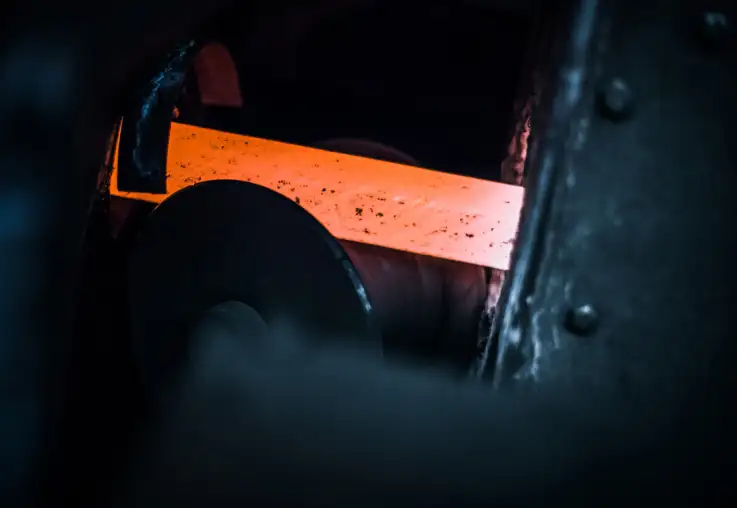
| Quality | Material number | Norm |
|---|---|---|
| C35 | 1.0501 | EN ISO 683-1 (EN 10083) |
| C45 | 1.0503 | EN ISO 683-1 (EN 10083) |
| C60 | 1.0601 | EN ISO 683-1 (EN 10083) |
| 100Cr6 | 1.3505 | EN ISO 683-17 |
| 20MnV6 | 1.5217 | EN ISO 683-2 (EN 10083) |
| 20MnB5 | 1.5530 | EN ISO 683-2 (EN 10083) |
| 30CrNiMo8 | 1.6580 | EN ISO 683-2 (EN 10083) |
| 34CrNiMo6 | 1.6582 | EN ISO 683-2 (EN 10083) |
| 41Cr4 | 1.7035 | EN ISO 683-2 (EN 10083) |
| 42CrMoS4 | 1.7227 | EN ISO 683-2 (EN 10083) |
| 34CrAlNi7-10 | 1.8550 | EN 10085 |
| 34CrAlMo5-10 | 1.8507 | EN 10085 |
Other qualities on request
An alloy of iron and carbon is called steel. However, not every type of steel is suitable for every application. A safety component in a machine or car has different requirements than a knob of a kitchen cabinet. To make steel suitable for high-quality applications, it is alloyed. A steel is alloyed when it contains between 1.5% and 5% of alloys (excluding carbon).
By a combination of chemical elements, production process, and heat treatment, steel is made “higher quality”; so-called alloying. According to the “stahlschlussel”, hundreds of types of alloyed steel are standardized, each with its unique properties and applications.
Alloying, however, is different from refining. Refining of steel is the changing of mechanical values (Rm, Re, and elongation) while maintaining the chemical analysis. Refining of steel is done through temperature (ovens) or through electricity (induction). By achieving an optimum of temperature, time, and cooling speed, the values are brought within the desired range.
Common refining notations are:
| +A | Soft annealed | Soft annealed |
| +S | Stress-relieved annealed | Stress-relieved annealed |
| +AC | Annealed with "spheroidized carbides", for example for ball bearing steel | Annealed with "spheroidized carbides", for example for ball bearing steel |
| +QT | Quenching and tempering | Quenching and tempering |
| +N | Normalizing | Normalizing |
Note: if an alloyed steel is indicated with +AR (as rolled), no refining has taken place.
Doing business with the steel producer without intermediaries. The chance of making mistakes decreases as there are fewer links in the chain.
Why pay extra for storage and handling when it can be delivered directly? Avoid unnecessary costs in the metal chain and start saving today.
Jominy monitors the entire purchase process from request to payment follow-up. This way, you are completely taken care of.
Benefit from our extensive knowledge and experience in steel applications. We collaborate with you on tolerances, applicability, and alternatives to deliver the ideal steel solution.
We only supply raw materials that meet the correct EN standards, including European regulations such as 2011/65/EU RoHS II and 1907/2006 Reach, which are mentioned on the material certificates.
For advice on streamlining material needs, product development, diameter optimization, EN standards, and more, you can rely on us.